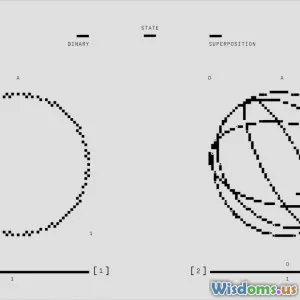Wearable Tech: Tracking Health in Real Time
6 min read Explore how wearable technology is revolutionizing health monitoring, enhancing personal wellness, and offering real-time insights into our bodies. (0 Reviews)Wearable Tech: Tracking Health in Real Time
Wearable technology has become an integral part of our daily lives, evolving from simple fitness trackers to sophisticated health monitors that provide valuable insights into our well-being. This article explores the functionalities, benefits, and future prospects of wearable tech in health monitoring, emphasizing its role in empowering individuals to take charge of their health in real time.
The Rise of Wearable Technology
The concept of wearable technology is not new. Early iterations, such as pedometers, have been around for decades. However, the rapid advancement of technology over the last few years has led to a significant evolution in wearable devices. Now, devices like smartwatches, fitness bands, and smart clothing are capable of tracking a wide array of health metrics, from heart rate to sleep patterns.
Key Features of Wearable Devices
-
Heart Rate Monitoring: Most smartwatches and fitness trackers come equipped with heart rate sensors. Continuous heart rate monitoring allows users to understand their cardiovascular health better and detect any irregularities early.
-
Activity Tracking: Wearable tech can track various physical activities, including steps taken, calories burned, and distance traveled. This functionality encourages users to maintain an active lifestyle.
-
Sleep Tracking: Quality sleep is crucial for overall health. Many devices monitor sleep patterns, providing insights into sleep duration and quality, which can help users make necessary lifestyle adjustments.
-
GPS and Location Tracking: This feature is particularly beneficial for outdoor activities like running and cycling, allowing users to map their routes and analyze their performance.
-
Health Alerts: Advanced wearables can send alerts for unusual heart rates, irregular sleep patterns, or reminders for physical activity, helping users stay on top of their health.
The Impact of Wearable Tech on Health Management
Wearable technology offers numerous benefits, particularly in the realm of health management. Here’s how:
Empowering Individuals
Wearable devices empower users by providing real-time data on their health. This immediate access to information facilitates informed decision-making regarding lifestyle choices and health management. For instance, if a user notices a sudden spike in their heart rate during rest, they may seek medical advice sooner rather than later.
Enhancing Preventive Care
Wearable tech is instrumental in preventive healthcare. By continuously monitoring vital signs and health metrics, these devices can help identify potential health issues before they escalate. Users can share their data with healthcare providers, enabling proactive health management and tailored treatment plans.
Fostering Engagement in Health
Wearable devices often come with user-friendly apps that gamify health tracking. This aspect encourages users to set and achieve health goals, whether it’s reaching a step count, maintaining a regular workout schedule, or improving sleep hygiene. The social features embedded in many apps also allow users to connect with friends or communities, further enhancing their commitment to health.
Challenges and Considerations
Despite the numerous advantages, there are challenges associated with wearable technology in health tracking. Privacy concerns regarding data security and the accuracy of the data collected are significant issues. Users must ensure that their devices are from reputable sources and that they understand how their data will be used and shared.
The Future of Wearable Technology in Health Monitoring
As technology continues to advance, the future of wearable tech in health monitoring looks promising. Innovations such as biosensors, which can monitor blood glucose levels or hydration status non-invasively, are in development. Moreover, the integration of artificial intelligence into wearable devices could lead to more personalized and predictive health insights.
Conclusion
Wearable technology is transforming the way we monitor and manage our health. By providing real-time insights, these devices not only promote personal wellness but also empower users to take proactive steps in their health journey. As we look ahead, the ongoing evolution of wearable tech will undoubtedly unlock even greater potential for enhancing health outcomes, making it an exciting field to watch.
Rate the Post
User Reviews
Popular Posts





















